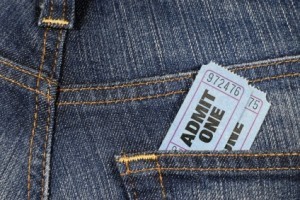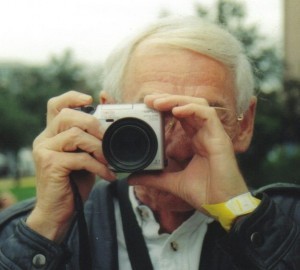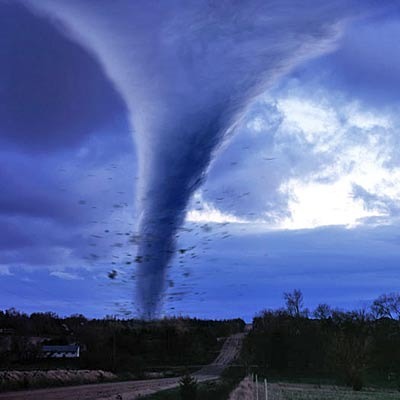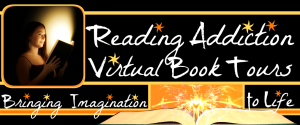M.J. Pullen's Blog, page 26
July 29, 2013
Blog Tour August 24 – September 4
Just confirmed that I’ll be hanging out with the awesome book bloggers from Reading Addiction for a two-week blog tour for The Marriage Pact starting August 24. There will be reviews and interviews and maybe even a giveaway or two. Join me and get your reading fix!
Stay tuned: more information coming soon.
The post Blog Tour August 24 – September 4 appeared first on MJ Pullen.
July 26, 2013
What’s a Fair Price for an eBook?

How my Kindle feels inside
If you follow my doings on Facebook, Twitter, or Amazon, you may have noticed that I recently put an end to what was essentially long-term promotional pricing for both my currently published books. (The Marriage Pact had long been at the entry-level price of $0.99 and is now resting at $2.99, with Regrets Only at a still-affordable $3.99). Why? I realized that entry-level pricing was no longer giving me the bang for the buck (bang for the 99 cents, technically) that it once had.
It’s hard to say how many 99 cent books are available on amazon.com, but at the time of this writing my search for “99 cent kindle books” produced 444 results. That doesn’t include books that are free on amazon, either those public domain works made available by Amazon themselves, or books being promoted for free by authors (like me!) through the KDP select program. If you’re worried about finding those 99 cent or free books, don’t. There are countless social network sites and services available to help readers stay on top of freebies and cheapies [often funded from the hopeful pockets of the very authors giving their work away].
That’s a lot of inexpensive reading material; and lots of hours and dollars being shelled out by aspiring authors to create and promote it. And with instant downloads, it’s easy for readers to get a Kindle-ful of verbiage for next-to-nothing. Some of it is well-written, some of it not. This is great, if you are stocking up on options for your trip to the beach, or if you’re the kind of person who blows through two or three books a week.
It’s a mixed bag if you are a reader looking for high quality at an affordable price, or if you tend (as I do) to download anything that looks remotely interesting when it’s free, and then find that you have no idea how to prioritize your glutted Kindle when you do finally sit down to read. “Now wait, did I buy this because it was highly rated, or because the guy giving it away had a cute picture of his cat on Twitter? Is this the five-star adventure someone highly recommended, or the one by my step-brother’s girlfriend’s cousin*?”
The situation is even worse if you’re an indie author waiting for someone to wade through their Kindle content to get to your book (so they will love it and buy another one, obviously). Every time you see another author posting about how their free book is ranked so highly on Amazon, you think: “Oh, good. I’m SO happy that the Kindle puts the LATEST downloads in front.” [read them, too.
And as for the publishing companies, well, they are none too pleased about any of this. The big-six publishers are obviously not so thrilled that scrappy, opinionated little authors like me can provide great content with minimal overhead and beat the pants (panties, in the case of my contemporary romances) off their pricing structure. Of course, before I can compete with big publishers in earnest, I have to be able to compete with their marketing efforts, which is nearly impossible to do at $0.99 or even $2.99 a book, especially when one of the best strategies to get books into readers’ hands is to give them away.
The big publishing companies are sticking together and digging in their heels, with the landscape of the publishing industry, brick and mortar bookstores, and many authors’ livelihoods at stake. And despite all my indie author smack-talk, I am not really sure who to root for anymore. I like big publishers to fear me, but I don’t actually want them to go down. I’m grateful to Amazon for giving me a platform to publish, but I don’t want them to be the only game in town. That would benefit no one. But I digress…
Indie authors are divided about the low-price strategy when it comes to establishing a name for oneself and getting a ‘foot in the door’ with your target market of readers. I invite you to read author Joanna Penn’s dated but excellent summary of the 99-cent strategy employed by so many authors, including myself until recently, and Melissa Foster’s cogent caution about rock-bottom pricing.
At the end of the publishing day, the tension comes from these three paradoxical facts: 1. When it comes to unknown/indie authors, readers seem to be price-sensitive. They will try something new about three times as often for under a dollar than for under three dollars. 2. Authors cannot realistically sustain themselves for long on $0.99 Kindle books, even with the relatively generous 35% royalty structure amazon provides at that price point, especially after paying editors, proofreaders, web designers, cover artists, etc., and 3. There will always be newbie authors of all skill levels willing to try the low-price strategy to get their books into the hands of readers, so 99 cent eBooks are not going away any time soon.
If you put these three facts in a bowl and swish them around, you get a confusing gray mass that looks and smells like it could be damaging to indie authors and discriminating readers alike. In the current state of eBook sales, the free + 99-cent strategy can work in the short term as a tool for indie authors to introduce themselves to readers, and you might even eek out a small profit. That taste of success is encouraging, but it’s certainly not sustainable in the long run. If readers get so used to 99 cents or even $2.99 as a price point for indie eBooks that they refuse to pay more than that, there will pretty much be two kinds of digital books available: established, traditional authors at anywhere from $12.99 to $19.99 for the digital versions; and desperate, green authors with nothing to lose and minimal editing, hawking books for $1 or $3, waiting for their big break.
I’m not disparaging those folks, because I’m one of them. I’m also looking for a job doing something else so that I can afford to keep writing on the side. Until my writing reaches enough people, who enjoy it enough, to pay $4-$8 per eBook; I can’t make it my only job. So my task as an author is to write stories that are so compelling, that readers who are introduced to them will not only be willing to shell out $5 or more to read the next one, they will also recommend their friends do the same.
Which brings us back to the title question. What is a ‘fair’ price for an eBook? For fiction, at least, the answer might be as simple as the supply and demand curve: it’s that sweet spot where what you (the reader) are willing to pay meets what I (the writer) can afford to make it worth my time. For some of us that might be in the $3-7 range for a well-edited, well-received novel of average length, for others it will be higher or lower.
Can you expect there to always be eBooks available at 99 cents and $2.99? Yes, I think so, until Amazon changes those bottom levels (if they ever do). Will those books be worth reading? Some of them, certainly. Will authors worth reading keep writing at those price points year after year, book after book? My prediction: not so much.
Maybe the question should not be ‘what’s a fair price for AN eBook?’ but rather, ‘what’s a fair price for THIS eBook?‘ Books are not commodities – you cannot sub in M.J. Pullen for Helen Fielding or Nora Roberts (someday, perhaps!) as though they were interchangeable sacks of grain. And just because there are 444 books for a dollar, or thousands at $2.99, doesn’t mean those are the ‘right’ prices.
The value of each book goes up or down based on the quality of the writing, the relevance of the story, the creativity of the presentation, emotionality, reader ratings, critical acclaim and many other factors. Perhaps the hardest of these to pinpoint is each reader’s subjective experience, which can be partially captured by reviews but not entirely. Purchasing a book – paperback, digital, indie, traditional – always includes a certain amount of risk. You may find a 5-star book with a Pulitzer prize that you hate, or a 3-star story with sloppy grammar that you simply adore.
In my never-humble opinion, authors must be willing to price their books based on an as-objective-as-possible assessment of their story and craft, allow for experimentation, and adjust based on feedback and reviews. Maybe it’s not always so, but it does seem in general that a 4 or 5 star book with 100+ reviews has more standing to command a higher price than a book with lower or fewer ratings. For readers, a high volume of good ratings lessens the risk of it being riddled with typos, or just plain terrible; that should be worth something.
The readers’ job in this system, then, is to provide objective feedback in the form of honest ratings and reviews; to be ambassadors for their favorite authors if they feel inspired to do so; and to understand that good authors can only continue to write, improve, and write again, when they can afford to pay their rent. If you only buy books at bottom-barrel prices, eventually you will have only bottom-barrel books from which to choose. I guess I’m saying it’s about managing expectations for what your dollar should buy.
When I came out last week and raised my prices to less self-deprecating levels, I hope what readers heard me say is, “Yes! The votes have been counted, the reviews are in, and this eBook is worth (at least) a $3 or $4 investment. I hope you’ll agree!” I also hope that readers who choose to make that investment have taken the time to read the summary and a few reviews so they will know what they’re getting into with my books. I think it’s actually more enjoyable to read something you chose thoughtfully as a good fit for you, rather than something that just happened to be in the bargain bin when you walked by.
What do you think? Does price impact your impressions of a book’s quality? Are you more likely to read and review something you’ve paid for than a freebie? For my author friends, how do you set your pricing?
*If I am anyone’s step-brother’s girlfriend’s cousin, would you please comment and tell me so? Because that would be awesome.
The post What’s a Fair Price for an eBook? appeared first on MJ Pullen.
July 21, 2013
The Hangover: Early 20′s vs. Late 30′s

Photo credit: Wallpaper 3D
Last night, Hubs and I went to a concert with some close friends, a rollicking good time. Since my friend was kind enough to serve as the designated driver, I overindulged a bit at the bar. More than a bit, to be honest — though not entirely my fault. Long story. Anyway, there’s something about a concert under the stars and a babysitter with no curfew that sets a girl free, you know?
So this morning, I began thinking about hangovers. 
I don’t drink much these days, certainly not enough to experience a painful morning after. A glass of wine (or two) at dinner or a beer (or two) at a ballgame is about it. Not like, say, in college or in my early 20′s when I traveled around Europe and went to graduate school with some friends and classmates who could’ve passed for fish. Now that I can see 40 coming in a couple of years, I’ve found that hangovers are quite a different animal.
Early 20′s hangover: “Oh, man, I was so wasted last night. I stopped counting after we had that third round of shots and fifth pitcher of beer.”
Late 30′s hangover: “I think I got a little over-served last night. I should not have had that second cocktail.”
Early 20′s”: “This is really bad, it’ll take a greasy breakfast and at least 3 hours of extra sleep before I’m feeling like myself again.”
Late 30′s: “I can’t handle the grease today, and I won’t get any extra sleep. I should feel like myself again by late Tuesday.”
Early 20′s: “Ugh. My head is killing me. I wish the people down the hall could get those kids to quiet down.”
Late 30′s: “Ugh. My head is killing me. I wish the child currently sitting on it would stop screaming and that someone would change his diaper.”
Early 20′s: “I am never going to drink like that again. Next weekend I’ll just abstain.”
Late 30′s: “I know better than to say I will never do this again. By the time I get another night out away from the kids, I will have conveniently forgotten how I feel today, or else I will decide that it’s worth it for a pitcher of margaritas.”
The post The Hangover: Early 20′s vs. Late 30′s appeared first on MJ Pullen.
July 9, 2013
Cynicism and the Jazzercise Jiggle
I’m going to tell you a couple of things about myself that you may not know. One, I consider myself something of a recovering cynic. I come from a long line of stalwart observers who often found it easier to point out what was wrong with the world (albeit in a clever and humorous way, at least in my case) than to risk the possibility that others might see their soft underbellies and take advantage. My family has always been more oriented toward suspicion and skepticism than bright optimism. In the Depression Era, people with this mentality were known as survivors. Today, they are known as media critics.
[image error]
Early Roman Cynic, thinks his thighs look “squishy” without the drape
Sometime in my late twenties, I made the semi-conscious decision that I was not going to carry forward this legacy of hyper-vigilant negativity. That decision may or may not have been related to a divorce that was at least 80% my fault. Anyhoo, la-la-la, happy things…. My humor can still have a bit of a biting edge to it, and maybe that’s okay; but I say I’m a ‘recovering cynic’ because I try not to let it affect my outlook or choices too much.
The second thing you may not know about me is that I love Jazzercise. Love, love, looooove it. See? I can say that, because I’m not cynical and too cool for school anymore. I know when you hear “Jazzercise” you think of this, and you’re only half wrong. It is a bunch of ladies of all ages (they accept male participants, too, I’ve just never seen one in any of my classes) dancing in a combination of jazz, aerobic, and a few other dance styles as a workout. I have to admit I really enjoy it, and I do like most of the music. It’s one of the only places I will force myself to tolerate Maroon 5.
I’ll concede, Jazzercise is make-funable in an Olivia Newton John sort of way, especially because there’s nowhere to hide in a Jazzercise class. There are no hulking weight machines, treadmill rails or spin bikes to take the focus off your body and your ability (or lack thereof) to follow the moves with some amount of coordination and rhythm. You’re standing next to people, chatting, and then the music starts, and you’re trying to keep up and remember what a ball-change is. And also, not fall down. That’s a biggie, at least for me. Anyone who has met me in person knows that my dancing skills are almost as bad as my singing, which is awful. Really, really awful. So I just try to stay upright, sweaty, and moving generally in the same direction as everyone else.
The past couple of months actually comprise my third go-round with Jazzercise. I signed up for a few months right after college (in the 1990′s), then again after our first son was born, until it didn’t work with my schedule. Now I’m back and this time around has undoubtedly been the most fun. Why? you ask. Thank you for asking!
It’s because this time around, I decided to unleash the jiggle.
Up until now, I’ve been the person who, in any exercise class, prefers to stand near the back, near a wall, or preferably both. When the moves required jumping, hoisting your arms, or shaking your booty, I generally did so half-heartedly, if at all. I didn’t like the way my body looked during these activities, plus there was the unwanted exposure of potentially looking silly or messing up in front of people. These feelings are actually a holdover from the sixth grade dance, where everyone stands along the wall, not wanting to call attention to themselves, while wearing the most expensive piece of clothing they’ve owned up to that point.
Incidentally, here’s my summary of the sixth grade dance:
I can’t go out there. No one is dancing. I would literally rather die than be the first person on the dance floor. Okay, now people are dancing, but they’re just teachers. They don’t count. Now the teachers have pulled some people out to dance with them. I bet those kids wish they were dead. Oh, hey, it’s that guy I can’t stand, looking horrified. Yay. Wait, there goes the guy I can stand. I can stand him a lot. Well, obviously I can’t dance in front of him. Now he’s dancing with someone else. I kind of want to go out there but there is a 120% likelihood that I will humiliate myself and he will hate me forever. Better hang here and pretend to be interested in a conversation with my friends, which is exactly the same conversation we’ve been having for three weeks. About how much the dance sucks, and what will we possibly wear to the sucky dance. Except now we’re here and we’re wearing it. Okay, fine. I will dance as soon as there are enough people that I can hide among them. And I will wait for a better song. Not that song. Not that song. They have pizza? Okay, I will dance after pizza. Now the pizza is gone and everyone is dancing to a song that everyone likes. Okay. Here goes. [steps onto dance floor and is elbowed in the head by cute boy, who laughs and says 'sorry dude,' and is now holding hands with cute popular girl]. I suddenly have to go to the bathroom. Will someone come with me? Back to wall. Look at how ridiculous everyone looks. I’m not going out there again like some kind of sheep. I’m going to stand over here and brood. Obviously that makes me cool, and protects me from ridicule. Except I’m pretty much alone. Guess I will go back out with my friends and dance in a circle. [2 minutes pass]. It’s over? Already? This sucks.
So that’s where it comes from. Well, that and my natural inclination to cynicism (see above), which is just an intellectual word for being able to suck the fun out of anything by pretending to be smarter than everyone else. One of the things about being a cynic, or a critic, is that it prohibits you from really doing anything yourself, because to do so is to risk losing your standing to ridicule others. You can’t deride people for making asses of themselves if you yourself have also been an ass. If you put yourself out there, chances are you are going to make mistakes just like everyone else. It’s why movie critics don’t direct and literary critics don’t publish. And it’s why this uncoordinated writer always danced near a wall. My words, I could put out there. My bat-wing arm fat? Not so much.
So what’s changed? Maybe it’s having two kids, who have helped me realize that I really have no standing to call anyone else an ass (or a bad parent, or ridiculous, or eccentric, etc.); and who have taught me to really value any time I get to myself. If I’m going to sneak out at five a.m. or drag them to the childcare room so that I can have 60 minutes of me-time, dammit, I’m going to make the most of that time. Why half-ass something that you have fought so hard for? Plus, the moves that make certain parts of my body jiggle are the same moves that will help those parts firm up and get stronger. Maybe more jiggling in the Jazzercise studio means less jiggling, and more breathing, elsewhere.
Or maybe I’ve just realized that it doesn’t matter. Whether I park safely in a corner or hop right up on the front row, no one is judging me. They’re all to busy trying to go the right direction and not fall down themselves. No one cares if my arm fat jiggles during this move, or my sizable rear end keeps moving for a second after I stop that one. They don’t care if I get the moves wrong sometimes or have to stop to catch my balance. And even if they did, what does it matter? We’re all hurtling toward the infinite blackness of death anyway.*
Might as well dance.
“Masters, remember that I am an ass;
though it be not written down,
yet forget not that I am an ass.”
——————————–
*It’s just possible that I have not entirely purged myself of bleak, cynical thinking. Eh. Screw it.
The post Cynicism and the Jazzercise Jiggle appeared first on MJ Pullen.
July 1, 2013
Happening August 15, 2013: #writerskaboodle (Twitter)
For those of you on Twitter, you might want to drop by hashtag #writerskaboodle on Thursday, August 15 at 12:00 (noon) EST, where I’ll be doing a live Tweet-stream interview with Sezoni Whitfield. You never know what I might say! I mean, probably we’ll be talking about writing and reading, but still, it could get CRAZY. 
To see Sezoni’s calendar of author interviews for all upcoming Thursdays, visit http://writerskaboodle.blogspot.com/2... She tweets with some great folks!
If you are can’t make the interview on August 15, you can still follow my Twitter account at @MJPullen. I post sporadically there: funny observations, lines from my novels, links to interesting things, promoting my fellow authors, and once in a while… something really profound. So join me in the twitterverse… we’ll wax poetic in 140 characters or less.
Twitter is the new haiku.
The post Happening August 15, 2013: #writerskaboodle (Twitter) appeared first on MJ Pullen.
June 28, 2013
The Art of Friendship
I got back late yesterday from a much-needed summer break. One of my nearest and dearest girlfriends, who now lives in another state, managed to organize a couple of kid-free days for the two of us in Asheville, North Carolina. It was rejuvenating in so many ways.
Among other things, we sampled some delicious food, consumed a good bit of beer and wine, roamed the eclectic city on foot, and visited the fantastic Blue Spiral art gallery. My friend has a bit of a crush on artist Will Henry Stevens, which is the ultimate in unrequited love since he died in 1949. He hangs out at the Blue Spiral, and so we did, too.
Somewhere in there we caught a movie (Joss Whedon’s Much Ado – yes!) and even got our toes done. She also tied me down and forced me to finally watch Dr. Horrible’s Singalong Blog. It was awesome.
But what we did most, which of course is my favorite part, was talk.
We talked for hours and hours and hours. We had no agenda or goal. There were tangents – so many tangents, layers on layers.

Untitled #1245, Will Henry Stevens
Sometimes we made it back to the place we started and sometimes not, and either way was just fine. We just kept talking. On foot, in the car, on the couch at the bed and breakfast. We talked about superficial things like clothes and deeper topics like politics and our families and the nature of friendship – even our own.
And to my delight, we talked quite a bit about books as well. My friend is well-read (maybe more than she realizes) and I love hearing what she’s enjoying and what she thinks I might enjoy too. Her love of books reminds me of a time when I read more than a book a week — a time long gone since graduate school, career and kids rearranged my priorities for me. But I’d like to get back there and it’s nice to be reminded. She chastised me for being inactive on goodreads, and I have promised her that I will do better there, too.
I am blessed to have a large number of friends from a variety of circles, many of whom have known me for not just years but decades. There’s a special gift in someone who has known you for almost as long as you have known yourself. We remember one another at some of our best and worst moments, and we have standing to call out one another’s bullshit when we hear it. And yet there is kindness there, too, and forgiveness and light. Someone who sees the broad arc of your life can smooth over the glitches and imperfections more easily, and at the same time challenge you to be better than you are — because she remembers the potential you may have forgotten in your day-to-day minutia.
I have not just one friend like this, but several, and I am so grateful to them for hanging around year after year, seeing the real me, and loving me anyway. I returned from this mini-vacation not just refreshed, but centered and grounded, too. It’s a good trip when you come home without souvenirs (totally forgot to buy them), but with a renewed outlook on life (and a related to-do list full of empowerment and passionate ambition).
Thank you, my friend. For every bit of it.
The post The Art of Friendship appeared first on MJ Pullen.
May 8, 2013
Go Ahead, Check Your Pockets
Last night I was having a great conversation with a good friend of mine, who is a former counselor like me, while we walked around the trails at a nearby park. It was a beautiful evening with air that seemed ripe for personal discovery and revelation. Or at least a picnic dinner and pick-up soccer.
Somehow we got onto the topic of confidence and professional identity, an area that we have both been exploring for years. I told her that when people ask me what I do, I usually say “Well, I’m home with the boys a couple of days a week, and I do some consulting work, and… I’m a writer.” When I get to the “I’m a writer” part, I am generally looking in the direction of my shoes and my voice drops as though I were saying “and I’m an upscale prostitute on Wednesdays.” Sometimes I don’t even say “I’m a writer,” but I’ll say something weak and watery like, “and I write fiction, in my spare time.”
“What?” my appalled friend said. “You don’t lead with ‘I’m a writer’?”
No. I don’t. And I don’t lead with ‘I’m a mom,’ either, which I consider an equally important part of my identity. The truth is, as much as I love being a mom, and enjoy my consulting work, when people ask me what I DO, my heart says “writer.” Last year I made nearly four times as a part-time writer what I made as a part-time therapist. So why does my mouth start making excuses and justifying how I spend my time, rather than embracing who I am, who I have always been? Why do I deprecate the vocation about which I have been passionate since I was six years old?
My friend’s theory, which I believe is valid, is programming. Somewhere along the way, I allowed myself to be programmed (by authority figures, by society, and most importantly by my own insecurities) to believe that writing isn’t a real thing. It’s not a prestigious, reliable, acceptable way to make a living. Sure, I’ve always known that some people make it as professional authors, but my brain says those people are the exception rather than the rule, sort of like the 300 guys who play professional basketball in the NBA, just less sweaty and maybe with fewer tattoos.
I won’t get into all the heavy background of where my programming comes from, because that would be boring for you, even if it was therapeutic for me. But I will say that I’m realizing how often I have made the choice to do something ‘safe’ like getting and MBA on top of my English degree, or choosing a job that sounded more like a real job than ‘freelancer’ or ‘aspiring author.’ I was quick to give up when I met with rejection and hardship, quick to believe the people in my life who said maybe I’d better work on a backup plan. Am I glad I have a backup plan, a work ethic, and safety net? Yes. Have those professional experiences taught me skills, broadened my horizons, and informed my writing? Absolutely.
But if you’re always doing the backup plan, isn’t there some point at which it simply becomes The Plan? That would be fine, IF it’s really what you want. Some people fall into a job and then fall in love with it, which is great. But for me, my journey outside of writing has been largely based on fear — fear of failing at the one thing I have always loved, or worse, fear of succeeding. What happens if I succeed and don’t feel worthy of that success? Or I succeed and it’s not everything I’ve hoped, and then I will have lost the one thing I always thought I would love.

It’s in the last place you look. (Photo credit: hatman12)
There’s a story my college mentor, Coleman Barks, used to tell about a man on a train. When the conductor comes by to take the man’s ticket, he can’t find it anywhere. He checks his pockets, his briefcase, under the seat, his neighbor’s seat, much to the annoyance of the busy conductor. When he doesn’t find it, he starts the ritual again, looking in all the same places.
Finally the conductor says, “What about your breast pocket? You haven’t looked there.”
“I know,” says the man. “But I can’t look in there.”
“Why not?” says the conductor.
“Because I have looked everywhere else. If I look in that pocket and the ticket isn’t there, then I will have no hope.”
Sometimes I think we hold onto something so tight, whether it’s a dream or a relationship or a set of ideals, that we smother the thing we love rather than risk discovering that it is not perfect. We’d rather hide it in our pocket than find out what it really is, for better or worse. For me, I have done this when I don’t give my all to something, writing especially. Because if I don’t really try, I can’t really fail, right?
Uh, wrong. Not trying is the only real failure. I’m teaching this to my three-year-old son already, and yet I’ve ignored it myself for years. So now I’m working to battle my negative programming, replacing it with freedom and positivity. I have glanced into my breast pocket (or in my case an overcrowded purse) and I have a feeling the ticket just might be in there. Now it’s time to dig it out, brush off the Cheerio crumbs and the lipstick smudge, and see where it takes me.
What does your negative programming keep you from doing or becoming?
The post Go Ahead, Check Your Pockets appeared first on MJ Pullen.
April 30, 2013
Letter to the Me of 1993
My 20 year high school reunion is coming up this year; and predictably, it has me thinking about what I’ve learned in the last two decades, and wondering how my life might have been different if I’d known then what I know now. (Equally interesting would be if I knew now what I’ve forgotten since then, but that’s another blog).
So, just in case someone invents an actual internet time machine, and said machine can make text-only email deliveries to the computer lab in Russell Hall at UGA…
Dear 1993 Self,
Congratulations on your graduation from high school and acceptance at the University of Georgia. I know all you can think about right

My dad with the ever-present camera.
now is how annoyed you are that Dad is taking your picture in the driveway when you just want to get the show on the road to Athens, and wondering when you’ll be able to come home to see your boyfriend. The whole wide world is waiting for you out there, and besides, you hate having your picture taken.
Well, sweetheart, I hate to break it to you, but you’d better smile for that picture, because you will never be this young or thin again. And that boyfriend you’re planning to sacrifice all your weekends during freshman year to see? Don’t bother. Your friends and family are right, he’s not worthy of you, and in a few months he and some girl named Debbie are going to hand you your first real heartbreak. It won’t be pretty, but it will help you start your own life.
The good news is, despite the jerk boyfriend and the freshman fifteen (plus another ten for sophomore year), you’re about to start becoming a far more beautiful person on the inside. I won’t spoil the surprise on everything, but here are some suggestions:
When someone new invites you to do something, go. Your comfort zone leaves a lot to be desired, and there will be plenty of time to stay in later.
Be patient with your roommates. You’re not all that easy to live with yourself, and most of these people will be lifelong friends if you’ll let them.
The summer at Oxford is an excellent idea. Don’t hesitate.
Do yoga. Go jogging. Hike more. One day those activities will be considered luxuries with your time, and you’ll have random pains that make each one a little harder to do. Do them now and establish good habits. You don’t look fat in those running shorts. And if you do, so what?
Floss. One day your good luck with dentistry will wear off. And that ain’t cheap or fun.
When you see the guy giving away free t-shirts if you apply for a credit card outside the dorm, keep walking. That free t-shirt will be the most expensive piece of clothing you ever own.
Don’t sell your writing abilities short. Listen to this man‘s advice with an open heart and allow him to lift your creative spirit. It may not feel like a “safe” way to make a living, but you will rely on your writing in every job you have from here forward (not to mention several key relationships).
Allow yourself to get swept up in emotion, and to admit freely when you are wrong. People will love you better when you are not pretending to be perfect and strong all the time.
Hug your parents. They aren’t perfect either, but they love you, and they will be gone sooner than you can fathom. In less than 20 years you will long for the days when Mom called you too often and Dad always had a camera in your face.
Speaking of cameras, don’t hide from them. Smile big. Hug your friends. Ham it up. Use those images to spark wonderful memories, not to critique your body or focus on how much you hate your face in profile. Imperfections don’t matter. Moments matter.
Take out 50% of what you think you need as a student loan, and get a job to pay for the rest. Trust me, it’s far less painful to earn at 20 than it is to pay back at 30 or 35.
When you get ready to backpack around Europe for six months, take more money — and fewer shoes — than you think you’ll need. Do NOT brush your teeth on the train from Prague to Vienna.
It’s hard to say that your first marriage will be a mistake. It has some great moments and you will certainly learn and grow from it. So, go ahead and invest your whole heart. Move to Portland, move to Austin. Even unhappy endings can still leave you with happy memories, and some incredible experiences along the way.
Don’t miss out on anything because you’re either embarrassed or don’t think you’re good enough. You can do whatever you want; and you’re not above anything.
April 9, 2005: Avoid the chicken salad. Trust me.
Know when it’s time to let go. Your life will have many heartbreaks, but they will make you stronger and lead to a joy beyond imagining. Hang in there.
When the time comes, say “yes” to the guy with the good heart and incredible smile. You won’t regret it for a second.
Take notes. Keep a journal. Someday you will strain to recall all those moments you thought you could never forget.
Write, Write, Write. Make the time. Find the courage. Do it.
Finally: In a couple of years, Baz Luhrmann will release a popular song advising you and your generation to wear sunscreen, among other things. You will think this adaptation of a newspaper column a little cheesy and overrated. Baz, however, will redeem his credibility with you in 2001 when you see the movie Moulin Rouge, and then again in 2012 when you have a precancerous lesion removed from your forehead. Just shut up and put on the damn sunscreen already.
Love,
Your 2013 Self
The post Letter to the Me of 1993 appeared first on MJ Pullen.
March 21, 2013
My Three-Year-Old, In a Nutshell
 We let Monkey stay up a little late tonight and snuggle between us on the bed for some Antiques Road Show. It was one of those rare quiet moments in which he is so happy for the special treatment that he actually behaves himself for a bit, like he’s testing out the icy pond to make sure it’s really frozen.
We let Monkey stay up a little late tonight and snuggle between us on the bed for some Antiques Road Show. It was one of those rare quiet moments in which he is so happy for the special treatment that he actually behaves himself for a bit, like he’s testing out the icy pond to make sure it’s really frozen.
Out of that moment, before the drama of trying to get him to go to bed, I bring you this dialogue, which I think demonstrates the full range of a tender-hearted three year old boy’s deepest thoughts:
[We were talking about grandmothers, for some reason]
Monkey: …and Grandma Peggy died.
Me: Yes, she did. And I really miss her.
Monkey: I miss her, too.
[Hubs and I exchange a tiny smile since she died 10 years before he was born].
Monkey: But it’s okay, she still loves us. She’s in our hearts.
Hubs: That’s right.
Monkey: And G-d is with her.
Me: [Can say nothing, tears flowing. Hugs him tight.]
Hubs: Yeah, buddy. You’re right.
Monkey: And you know what else?
Hubs: What?
Monkey: If you cut yourself open and looked inside, you could see all your bones. And your heart. My heart is pink and purple. [Farts loudly] Did anyone hear that noise?
There are moments in life where you don’t know whether to laugh or cry, and others where you’re absolutely sure you must do both. I’m so grateful to my little boy for giving me one of those tonight!
The post My Three-Year-Old, In a Nutshell appeared first on MJ Pullen.
March 18, 2013
What would you take to the basement?
 Technically, tornado season in my home state of Georgia runs from March until June. If you’ve ever lived in the Southeast, you know the reality feels more like January to October. It seems that every-other week, we’re hearing the sirens and watching the local news for indications that it’s time to hit the basement. We had exactly that experience tonight: my husband screeched into the driveway on two tires so we could bundle the kids and a fresh bag of Taco Bell down the basement, minutes ahead of the scary-dark sky.
Technically, tornado season in my home state of Georgia runs from March until June. If you’ve ever lived in the Southeast, you know the reality feels more like January to October. It seems that every-other week, we’re hearing the sirens and watching the local news for indications that it’s time to hit the basement. We had exactly that experience tonight: my husband screeched into the driveway on two tires so we could bundle the kids and a fresh bag of Taco Bell down the basement, minutes ahead of the scary-dark sky.
This is far more fun in our new house, where we have a real basement with actual walls and a couch and TV. We had a picnic and the boys played while the storm passed far overhead, quickly dissipating into nothing. Our old house (where we lived until just a couple of weeks ago) had only a partial basement, which was unfinished and had windows on all sides, so our “refuge” was a tiny utility closet with a concrete floor covered in dead bugs and a couple of 200-year old plastic air fresheners on the walls. The last time we all had to go down there, we all crammed into the closet with me crouching over the baby in his car seat, trying to make his big brother as comfortable as possible in a half-unfolded camp chair while their dad and I ducked under the rough wooden shelves, listening to the weather on our phones and anxiously awaiting our release.
Whether you’re cramped in a utility closet or relaxing in subterranean luxury, however, the basic thought is the same during a potential tornado: “If we had to, we could start over. As long as we have each other, whatever gets obliterated upstairs doesn’t matter.” The danger forces you to huddle together and acknowledge, even for just a few minutes, what the most important components of your life really are. It’s not the clothes or the knick-knacks or the TV. It’s not even the books or the photos. It’s the people you love. Everything else can be replaced or at least survived.
Later, with the storm passed, I began to think tonight about how this concept can also apply to writing. I’ve been struggling with my current WIP: not knowing how to grow it from what I’ve already written, dealing with the vague sense that some things are not quite right, but hesitant to blindly butcher it…. You’ve been there.
So tonight I thought, “If I had to rescue just the bare essentials of this book, what would I keep?” Rather than trying to decide what to cut, I began to think about what to take to the proverbial basement. What about this work is so essential that I could start over with only those pieces? My plan is, in a new document, to jot down only those elements the story cannot live without, and ditch (at least temporarily) everything else. Of course it’s hard, just like starting over without the contents of my family’s home and closets would be hard.
But sometimes a fresh start can lead to great, new things – and teach you what is most valuable in the process. Sometimes forcing yourself to live without the elements you’ve accumulated over time leaves you space to write something even better, even truer to the story’s essentials. And in my experience, if you know what’s essential, anything is possible.
The post What would you take to the basement? appeared first on MJ Pullen.




